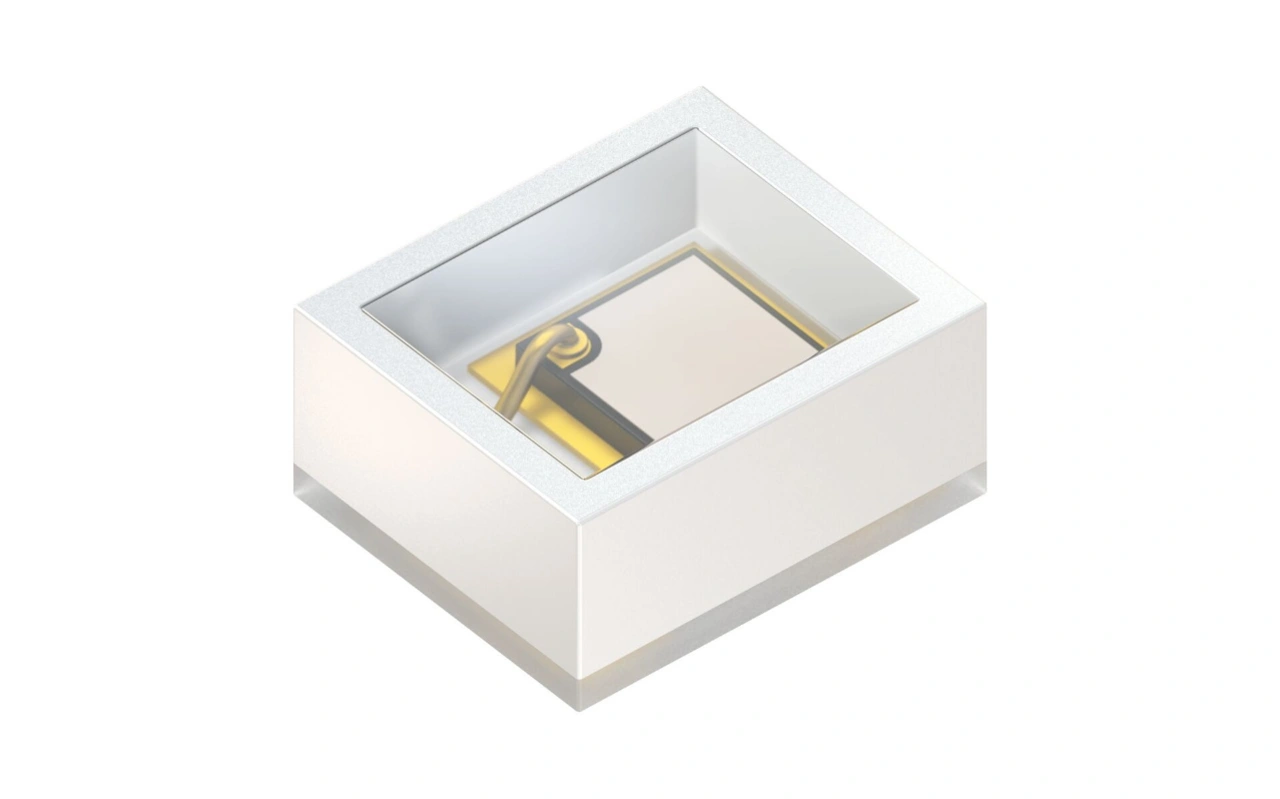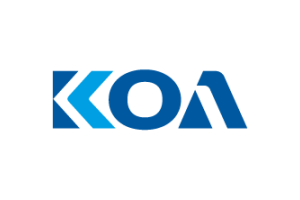In-Ear-Measuring of the Heartbeat
ams Osram: Tiny LED Chip for Precise Vital Data on Wearables
Whether headphones or smart rings: a new chip LED from ams Osram now detects the heart rate in wearable devices even more precisely using PPG measurement. With a high light output, the 500µm chip can be easily integrated to increase signal quality - it is barely larger than a grain of sand.
The sensor and semiconductor manufacturer ams Osram has presented a new miniaturized chip LED for the precise measurement of heart rate in wearable devices. For developers of wearables such as in-ear headphones or smart rings, the powerful 500µm chip can help to improve signal quality: at just 1.2 mm x 1.0 mm x 0.6 mm, the LED is barely larger than a grain of sand - and yet delivers a remarkable light output of 14mW.
More Light for More Precise Blood Volume Measurement
The CT ELLN51.14 chip LED has a 20 percent increase in brightness compared to its predecessor model and enables more efficient photoplethysmography (PPG) with even more compact dimensions.
The standard measurement method recognized for wearables measures changes in blood volume in the vessels by sending green light into the skin and evaluating the reflected signals. A more powerful light source, such as the new chip LED from ams OSRAM, significantly improves the measurement accuracy, especially in smart devices such as headphones or rings that are worn on areas of the body with good blood circulation.
At the same time, developers can also use the higher efficiency to reduce the energy consumption of their wearables and thus extend the battery life - a decisive factor in the purchase decision for devices that customers usually use for several years.
| Wearable development for medicine: »Vital signs are difficult to measure on the wrist« |
|---|
| Our exclusive interview with Florian Lex from ams Osram (in German) |

Precise Vital Sign Measurement in Smallest Spaces
»We have proven our expertise in monitoring vital signs and are following the trend towards miniaturization with high-performance products,« says Florian Lex, Product Marketing Manager at ams OSRAM. »Our new chip LED supports even more reliable heart rate measurement - even in devices that need to be unobtrusive yet precise.«
Continuous monitoring of vital parameters is becoming increasingly important - both in the medical and fitness sectors. As fingers and earlobes have better blood flow than the wrist, components placed there provide particularly precise data. The new green CT ELLN51.14 single emitter now makes these measurements possible in extremely compact designs and, according to Lex, promotes the trend towards powerful, unobtrusive wearables. In addition to LEDs, ams OSRAM offers numerous components for vital sign monitoring - including proximity sensors in headphones that can detect when the device is in the ear and thus support energy-saving functions.
1500 Patents for Green Emitters Alone
In the highly competitive wearable market, in which manufacturers and suppliers from Asia also play a major role, the Austrian-German sensor manufacturer can point to its long track record in the development of compact, high-performance LEDs. In the field of green emitters alone, which are important for PPG measurement, ams Osram holds more than 1500 patent rights as well as other IP rights to protect its developments. A further 200 patent rights in vital sign monitoring underline the proprietary technology expertise. (uh)





